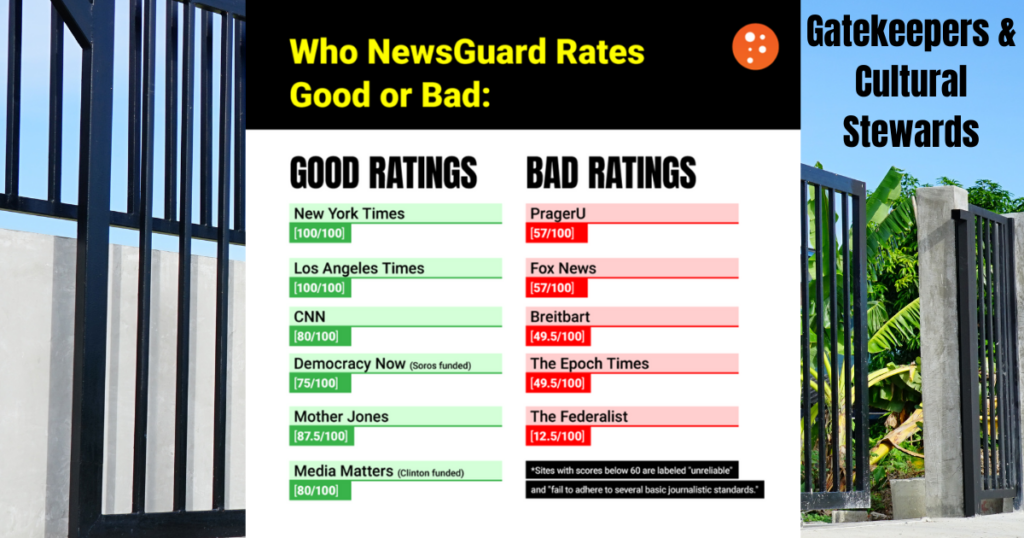For those who are in tune with the what and the why of their local culture (or, better yet, community), one does not have to be an elitist gatekeeper at a news station or university or think tank to want some ideas kept out of the mix.
Why?
Because culture is “the totality of socially transmitted behavior patterns, arts, beliefs, institutions, and all other products of human work and thought characteristic of a community or a population,”[i] and there are some communities that do not want their local culture infected by the mass culture of modern 21st century vulgar America. As Taki Theodoracopulos put it so insightfully in his article, “A Matter of Speaking”:
F—ing this and f—ing that have become the lingua franca of today’s celebrities. Needless to say, all this f—ing does is show how limited in brain power these freaks really are. Masters of the devastating retort these inarticulate vulgarians are not.[ii]
Taki Theodoracopulos
Modern American culture is base, thrives on being base, and celebrates the base, ugly, and vulgar–all the while calling it “entertainment.” Under their perspective on the First Amendment, the cultural elites have a “right” to spew forth whatever they want out of their mouths or in their journalism.[iii] Yet those who are on the other side of the cultural fence are silenced by the “cultural stewards,” or down-rated by organizations such as NewsGuard.
Cultural Stewards & Gatekeepers
Granted, in the age of Woke “cancel culture” and “shadow banning” on Facebook and other social media, the current “cultural stewards” appear to be a wide mix of people from the news media, academia, social media, and various government and substate entities that do the “canceling.” They are our current elite, who rule for the good of us all–just ask them! They will determine who is naughty or nice, all the while keeping a benevolent smile upon their benevolent faces.
In other words, they–“our current elite”–are the true heirs of the Politically Correct crowd that was up and running during the era when Bill Clinton was the president and his wife, and their crew of followers and workers, were most certainly of that brand of thinking.
Yet, whether we view society through the Clintons’ eyes, or the perspective of the current Biden Administration, the good of society can be subjectively defined many ways–depending upon who you are talking about and what they subjectively mean by “good.” Those graduating from America’s Ivy League universities no doubt believe that they have a handle on “the good,” and thus speak ex cathedra to and for all within their sphere of influence.
Theodore Dalrymple puts it best in his article, “For Goodness’ Sake!” describing current cultural leadership:
To be good, you must have the right opinions about important abstract questions affecting humanity, and to have those you must be well-informed and capable of drawing correct conclusions from a large amount of information. In short, to be good you must both be highly intelligent and agree with me.[iv]
Dalrymple adds:
The idea of goodness as having the right ideas on abstract questions is a godsend to mediocrities. It allows them to learn and repeat a few phrases or formulae and think that they are good and therefore ought to have a special role to play in the direction of society.[v]
Dalrymple’s online article (Taki’s Magazine) raises the point that people of mediocrity are fooled into thinking they are “intelligent” due to the fact that they have memorized the brief slogans and partial truths[vi] of their cultural avatars.
But are either of these societal stratums actually intelligent, and if so, in what manner? Dalrymple never stated what belief system he thought was being unjustly silenced nor what belief system should be allowed free expression. But his point is well taken: the people truly concerned about what is being shared on whatever medium is in use most likely make the “stewards” and those that pay them nervous in the service.
With the ubiquitous technology of cell phones and iPads and everything else available today dare suggest that technology IS a threat to society and the core values of it IF left unmonitored by gatekeepers and that which they are attempting to protect? Equally, is “society” (so-called “the United States of America”) the true “gatekeeper,” or rather something closer to home, such as a local community at the least, and county at best? Even more to the point–who should the “gatekeepers” ultimately be?
That essentially was why Elon Musk bought Twitter; to break the stranglehold Twitter had over the nation to beam what, in his own words, “was a society of death across the world.” In and of themselves, the people who controlled it did not have the ability to build it. But they were able to harness the ability of the engineers to build it, and to do tremendous damage to the worldviews of people in faraway places, by amplifying their ideas and destroying culture far beyond their location in north San Francisco.[vii]
Legitimate Authority
For Christian Liberty Homeschools, it is the parents who are biblically the “legitimate authority” (Psalm 127:3; Proverbs 22:6), thus the true “gatekeepers” for their children and their household. It should certainly not be the state, nor the local school board, much less a fool with a website or movie stars in Hollywood or sirens that made it big in music in Tennessee!
With CLH you, the parent, have total control over what your child interacts with academically, culturally, historically, media-wise, and spiritually! We are here to support you at: www.homeschools.org
Books and Classes to Consider:
Who Owns the Family?
American Citizenship and it’s Decline:
Prodigal Press: Confronting the Anti-Christian Bias of the American News Media:
Telling the Truth: How to Revitalize Christian Journalism:
Citations:
[i] American Heritage Dictionary, Second College Edition, (Houghton Mifflin Co.: Boston, 1982,85), p.348.
[ii] https://www.takimag.com/article/a-matter-of-speaking/
[iii] https://www.americanthinker.com/articles/2024/01/todays_journalists_seek_power_not_truth.html
[iv] https://www.takimag.com/article/for-goodness-sake/
[v] Ibid.
